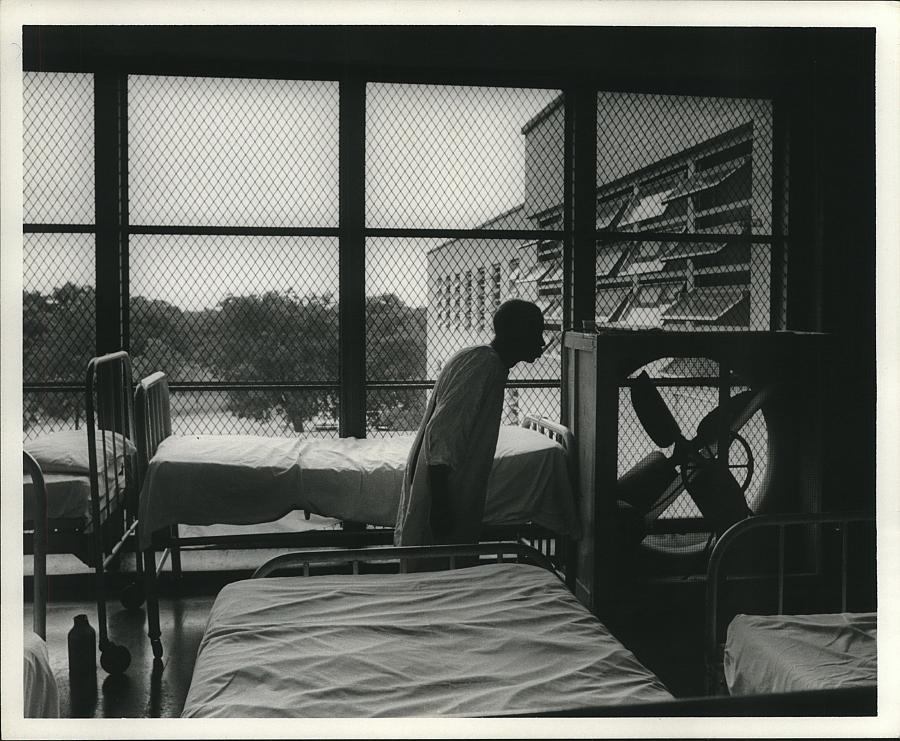Children are falling through the cracks of Texas' broken mental health system

Community mental health centers have long suffered from inadequate funding.
File photo courtesy Houston Chronicle
A 5-year-old boy was a patient at a Texas mental health hospital in 2017 for fewer than 24 hours, court documents said, before he was rushed to an emergency room covered in welts and bruises.
He was kicked in the head. He was choked. He was punched.
The child was just trying to play with Legos.
But hospital employees left him alone with a boy more than twice his age, his family alleges in a lawsuit.
Alex stumbled across this case while investigating the state’s adult mental health system, which a Houston Chronicle investigation found has suffered for years from underfunding and insufficient oversight.
Budget cuts in the mid-2000s — and a law that streamlined the process of finding someone incompetent to stand trial — left the state unable to keep up with demand for psychiatric hospital beds, creating a shortage that has left some mentally ill people languishing as they awaited trial for months in county jails with little support.
The Treatment Advocacy Center, a nonprofit in Virginia focused on treating the mentally ill, says states should have 50 public psychiatric hospital beds per 100,000 population. Texas has fewer than eight per 100,000.
But reporting for that series uncovered dozens of incidents involving children — many not even teenagers. A 6-year-old was given 10 times the proper amount of medication and was taken to the emergency room. The hospital told investigators that the staff had a “lack of knowledge about the child population.” Six children engaged in oral sex while unsupervised. At the same time, a child was being beaten by his peers while the nurse on duty watched TV. Numerous hospitals were cited for having an inadequate number of people on staff on the youth wings. In one instance, a young girl was able to set her pants on fire.
What happens when children enter the state’s mental hospitals, unable to advocate for themselves, removed from their family and support network? Are caregivers at these facilities trained to deal with children? What makes the children’s system uniquely flawed?
While these questions are always urgent, the stress and uncertainty caused by the global pandemic has caused an increased strain on programs already plagued with problems.
The foster care system in Texas is undergoing a series of court-ordered reforms following a 2015 lawsuit. In 2019, nearly 600 foster care children were placed in a state mental hospital for weeks, not because they needed treatment, but because the Texas Department of Family and Protective Services had no other place for them to go.
In Texas, like the rest of America, the largest mental health providers are jails. Juvenile justice centers typically send mentally ill children to get treatment in a psychiatric hospital. The long waitlist for a bed has left many mentally ill children stuck in juvenile justice centers, which often lack mental health resources. In Harris County, the juvenile justice center cancelled its contract with the local psychiatric hospital, saying it would build a new facility with on-site mental health care. Five years later, that new facility was never built.
State and local leaders know there are problems. After Alex’s series was published early this year, they were quick to act.
The state started tracking which private facilities received state funds to house mentally ill Texans — which they had never done before — and lawmakers increased funding and proposed reforms for the state’s adult psychiatric hospitals.
While we have the attention of state lawmakers and regulators, we need to highlight the unique problems impacting children’s psychiatric hospitals, including their intersection with the juvenile justice system and foster care.
Investigating the children’s psychiatric system will require us to clean and analyze inspection data, police records, emergency calls and court records. We will travel the state visiting these hospitals and meeting with families who have firsthand experience trying to get care for their children.
We hope our project, under the auspices of the 2021 Data Fellowship, draws attention to the flaws and cracks in the state’s mental health care system for children, prompting increased funding and new laws that will help children get the mental health care they deserve.


